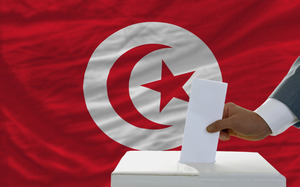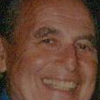 An estimated 5.2 million registered Tunisian voters on Nov. 23 get an opportunity to freely elect their country's president for the first time since the small Arab republic was formed in 1705.
An estimated 5.2 million registered Tunisian voters on Nov. 23 get an opportunity to freely elect their country's president for the first time since the small Arab republic was formed in 1705.Voters pray the new head of state will bring stability to their nation for the first time in 309 years. The median age of the registered voters is 31.
Voters in the 25 to 54 year age group make up 44.6 percent of the population, the largest voting block. The 15 year to 24 year age group makes up 16 percent. The 55 to 64 year age group comprises 8.4 percent, while the 65 year-plus group makes up only 7.9 percent. The 14 year and under segment comprises 23 percent.
Eligible voters must be at least 18 years old.
Birthplace of the Arab Spring on Dec. 18, 2010, secularist Beji Caid Essebsi is seen as the frontrunner after his party, Nidaa Tounes, won a milestone parliamentary vote on Oct. 26.
But, critics crow, Essebsi's age might hurt him at the voting booths. He is a spry 88. Essebsi denies his age is a hurdle. In interviews with the press, he says he will focus on positive growth aspects for the country, not on negative situations, like trying to settle scores with old opponents.
He vows to point Tunisia in a new direction, a direction that the world will see as a model for democracy in a country whose population is 98 percent Arab, one percent European and one percent Jewish and other small ethnic groups.
Essebsi leads a field of 27 candidates including incumbent Moncef Marzouki, 69; woman magistrate Kalthoum Kannou, 50; and former minister of ousted dictator Zine El Abidine Ben Ali, 78.
The Islamist Ennahda party, which dominated the political scene after the 2011 uprising, won only 69 of parliament's 217 seats on October 26.
Nidaa Tounes, formed just two years ago and comprising a coalition of leftist and secular groups including old guard figures, won 85 seats.
The Oct. 26 general election saw the election of the 217-member legislature, the first under the country's new constitution and the second since the 2011 uprising that overthrew the regime of former president, Ben Ali. He fled to Saudi Arabia on Jan. 14, 2011.
To prevent a new dictatorship, the new president's powers will be restricted under a constitution adopted in January. Most of the executive power will rest with the premier from Essebsi's party.
Between independence from France in 1956 and the revolution, Tunisia had just two presidents -- the "father of independence" Habib Bourguiba and Ben Ali who overthrew him in 1987.
International observers note that despite post-revolution instability, Tunisia is seen as the last hope of establishing a democratic regime in an Arab Spring state. The other Arab nations have, so far descended into chaos or repression.
Tunisia is bordered by Algeria to the west, Libya to the southeast and the Mediterranean Sea to the north and east. It is the northernmost country in Africa and, at almost 165,000 square kilometers (64,000 square miles) in area, the smallest country in the Maghreb region of North Africa.
Critics also note that Tunisia still faces significant challenges, including a growing jihadist movement blamed for the deaths of dozens of police and soldiers and the killing of two anti-Islamist politicians.
Stability is also threatened by a weak economy and rampant unemployment, particularly among young graduates.

 By
By 